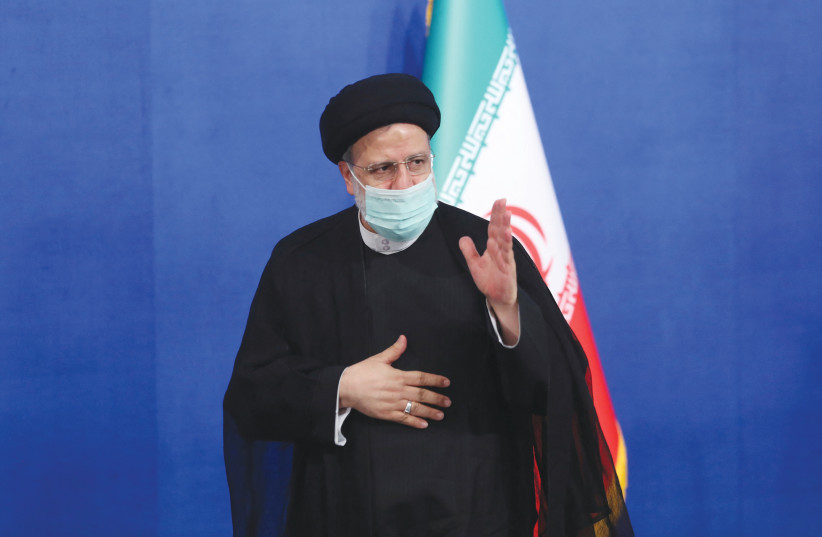In 2021, Iranian President Ebrahim Raisi repeatedly attacked the US in his UN speech as Washington begged to return to negotiations.
Raisi did the same thing on Wednesday.
Why is it different now?
The difference was that the IAEA Board of Governors had already condemned the Islamic Republic for its nuclear violations in June – and Raisi couldn’t care less.
In 2021, the Biden administration was upset that Raisi had frozen the nuclear negotiations. By Wednesday, both the US and the EU had lost their patience with Tehran and offered the best and most flexible deal that they were willing to offer.

Yet at the IAEA Board’s meeting this month, nothing happened. There was no additional condemnation, no referral to the UN Security Council, nor even a deadline for Iran to cut a deal.
Rather, the West signaled that they will not pressure the ayatollahs further until after the US midterm election in November. Because of this, Raisi seemed to ready himself and his nation for a potential post-November fight before the UNSC.
For most of his speech, Raisi lambasted the US for its “unilateralism” and its use of nuclear weapons at the end of World War II.
Raisi said that soon there will be “a change of the world order, a unilateral world, a world of hegemony, a world in which financial power controls behavior, with the use of international organizations as a tool of oppression on defenseless nations... a new order is shaping up to take its place.”
The not-so-veiled appeal was to many of the world’s nations sitting on the fence between a world led by the US and the EU versus those considering a new order led by countries like China, Russia and Iran.
Iran’s president was starting a campaign to try to win a future potential vote at the UNSC about whether to snap back global sanctions, something which would obligate both China and Russia.
In fact, due to specific provisions of the 2015 Iran nuclear deal, China and Russia cannot even veto such a vote, so the ayatollahs would need to win the vote.
Raisi cherry-picked statistics and said that Iran has 35% of IAEA inspections despite its mere 2% of the world’s nuclear activities. In other words, he made it sound like his country is being unfairly policed.
Of course, he did not mention that IAEA Director-General Rafael Grossi said for three years that the Islamic Republic has failed to explain three illicit uses of nuclear material, which appeared to be militaristic in nature.
Nor did he mention the 27 IAEA cameras that have been shut off since June, possibly allowing his nation to conceal critical portions of its nuclear uranium stock.
This was not only the speech of a leader with no intention of cutting a deal with the US, but the speech of a leader ready for a long and extended fight with the US, potentially deep into next year.
Israel will need to be on its guard to make sure that Iran does not use this “dead period” to break out the nuclear weapon that Raisi pretended his country has no interest in.
